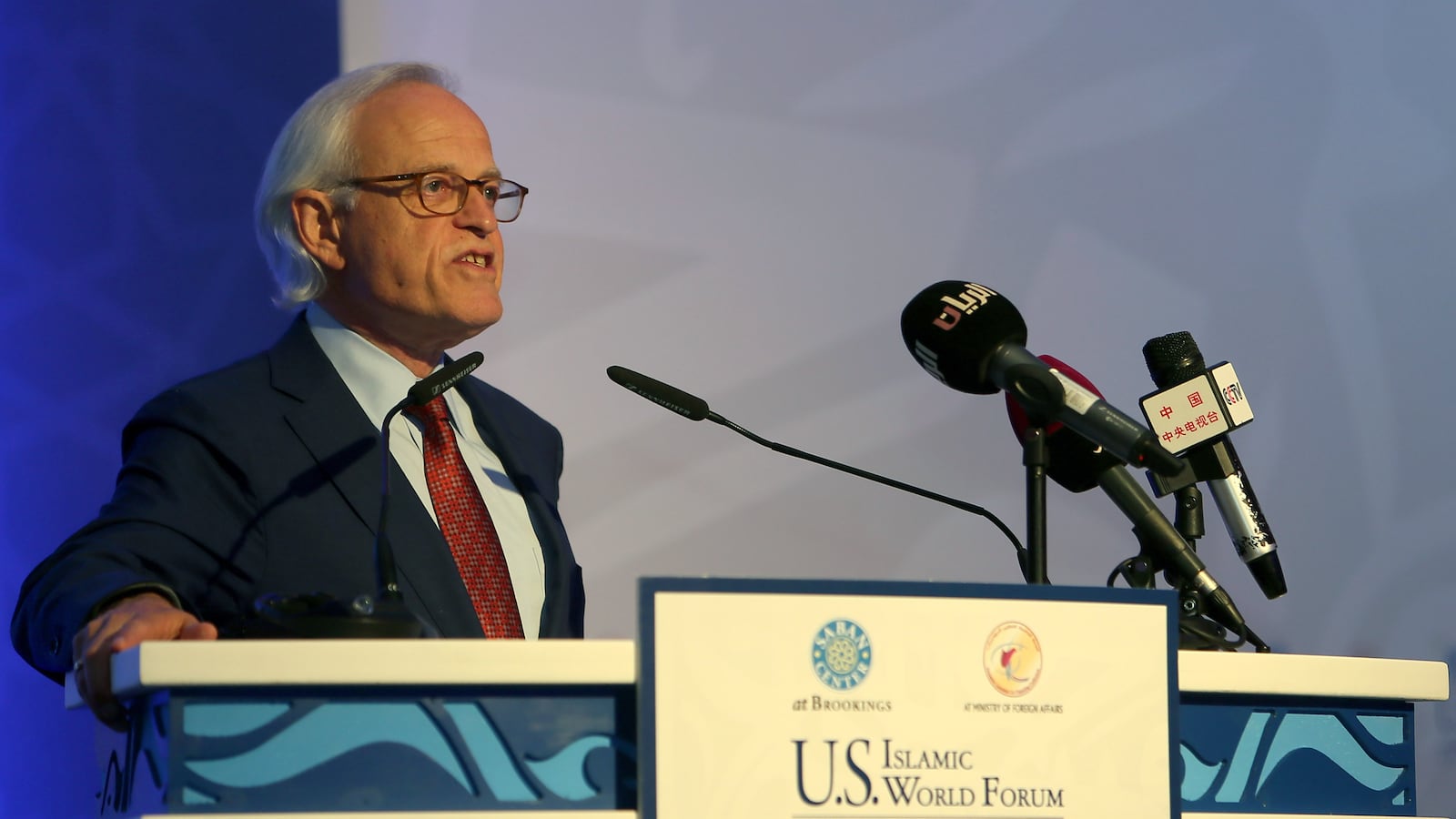John Kerry’s announcement of the onset of talks to begin negotiations between Israel and Palestine have raised many questions, not least of which is who would staff the American delegation shepherding the negotiations. It seems he’s started to put his team together: reports indicate that Martin Indyk will serve as point man in the talks (though the State Department has not confirmed this).
Protests to his potential appointment immediately erupted on Twitter, including this crass one from Stephen Walt. Most highlighted two complaints: that he had his shot and failed completely (i.e., no Palestinian state emerged and Israeli settlements expanded considerably), and that he’s too close to Israel to be even-handed and fair.

It’s certainly valuable to think about what went wrong in previous negotiations, and American officials need to consider what worked and didn’t work in their past efforts. But it’s wrong to ascribe the failure to achieve Israeli-Palestinian peace to the Americans, much less to a specific individual. Many other variables condition success and failure—including domestic politics in both Israel and in Palestine—and the fact is that the United States has not been responsible for any agreement between Israelis and Arabs. It’s facilitated and pushed where needed, but no treaty has been signed until both parties decided, on their own, that it was necessary. The role of specific individuals, then, is less important—though it’s not unimportant—than the broader processes at play.
Given this reality, Indyk’s selection would be a smart choice. It’s true that he once worked at AIPAC and then went on to found the Washington Institute for Near East Policy in the mid-1980s, which many contend is far too close to the Israeli perspective to provide impartial enough analysis and recommendations. And it’s true that, in the Clinton Administration, he advised the president who was himself considered to be “too pro-Israel” and then twice served as ambassador to Israel (1995-1997, 2000-2001, both crucial periods in Israeli-Palestinian relations).
Still, even critics agree that he’s smart, honest, hardworking, and well acquainted with—and not opposed to—Palestinian aspirations and interests. This is probably why it’s been reported that Mahmoud Abbas agreed to his participation, and that Benjamin Netanyahu has expressed unhappiness at his selection (which might derail the selection anyway). Indyk also signed off on a letter to the New York Review of Books defending Robert Malley, whose analysis (with Hussein Agha) in the same publication of the failure of the 2000 Camp David summit was criticized for putting too much blame on Ehud Barak and Israel and not enough on Yasser Arafat and the Palestinians.
But there’s also a certain reality to Israeli-Palestinian negotiations that needs to be recognized: Israel is clearly the stronger party, and the Palestinians much, much weaker. As such, Israel will have more influence over the negotiating process.
This isn’t an argument that Israel or the Jews control American foreign policy. It’s the same dynamic that conditions American facilitation of talks anywhere—going as far back to the post-World War One treaty discussions, when Woodrow Wilson’s closeness to the other Allies made him a particular target of Kurds, Zionists, Armenians, and Balkan peoples seeking to obtain independence from the great European powers.
Nor is it an assertion that Israel’s concerns matter more than Palestine’s. But it is to say that Israel can more easily ride out the status quo—predictions of intifada or apartheid notwithstanding—than Palestinians. If Israel is to be convinced to give up concrete, material things like land, particularly with a prime minister whose overriding concern is security, it will need to feel comfortable with its American interlocutors. If Indyk is more affiliated with the Israeli perspective, it’s the best way to get Israeli buy-in for an agreement.
Having said that, Kerry would do well to find someone to play a similar role for Palestinians. This will be more difficult, given that there are fewer government officials identified with the Palestinian side. But it would create an appropriate balance in the American team and help convince both Israelis and Palestinians that their interests are being looked after.
The sense of victimhood and siege that permeates the negotiating strategy of both sides will need to be directly addressed, especially if the leaders are to sell any treaty to their publics. Since the Americans cannot sign on the dotted line for them, making Israelis and Palestinians feel like their interests are being looked after might be the next best thing.






